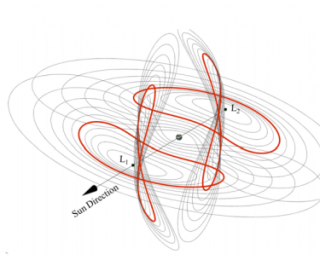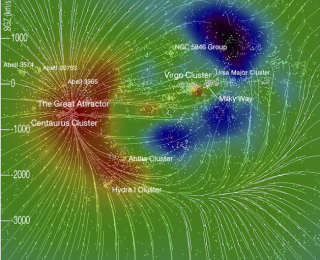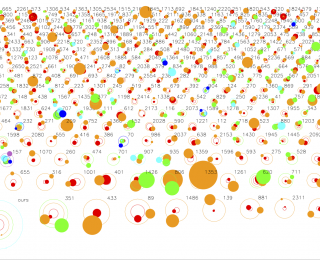
by Justin Vasel | Nov 7, 2013 | Daily Paper Summaries
A neutrino detector sits on the floor of the Mediterranean Sea whose goal it is to identify neutrinos from high-energy astrophysical sources.

by Justin Vasel | Aug 14, 2013 | Daily Paper Summaries
With some assistance from gravity, it is possible with currently-available technologies to bring small asteroids into orbit next to Earth to be studied and mined.

by Justin Vasel | Jun 7, 2013 | Daily Paper Summaries
Astronomers map out the local universe in a way that is both intuitive and fascinating, marking the birth of the new science of “Cosmography”.

by Justin Vasel | Jun 2, 2013 | Daily Paper Summaries
Frame Dragging is a phenomenon predicted by General Relativity, but its effects have been difficult to measure. A small, round satellite called LARES aims to change that.

by Justin Vasel | May 7, 2013 | Daily Paper Summaries
Title: Why Does Nature Form Exoplanet Easily Author: Kevin Heng Institution: University of Bern, Center for Space and HabitabilityIt’s an exciting time for planet hunters. Over the last few years, the search for extrasolar planets (“exoplanets” for short) has become one of the hottest topics in astronomy. During every exoplanet talk that I’ve attended lately, the speaker started out by announcing the total number of exoplanets discovered to date, which they quickly follow with the caveat along the lines of “Well, that’s the total number as of Wednesday, but it’s probably out of date by now.” Thanks to the Kepler Space Telescope, COROT, and other ground-based observatories, planet hunters are finding these things so fast we should probably start barcoding them.If you keep up with us here at Astrobites, you’ve no doubt read all about habitable zones, hot Jupiters, and super Earths (after all, “Exoplanets” is one of the most common tags for our posts, seconded only by “Observations”). Today, I’d like to summarize a recent arXiv submission that takes some time to appreciate the apparent abundance of exoplanets in our galaxy, especially because we don’t rightly know why they are so abundant in the first place. The paper is a recapitulation of our theoretical understanding of exoplanet formation, which appears to be not that great. Based on our current theoretical understanding, forming exoplanets is no walk in the park, but Nature makes it look easy. The author encapsulates this conundrum in one of the most poetically terse abstracts I’ve ever read: “The ubiquity of worlds beyond our Solar System confounds us.”Planets EverywhereKepler has only been hunting planets since 2009,...





